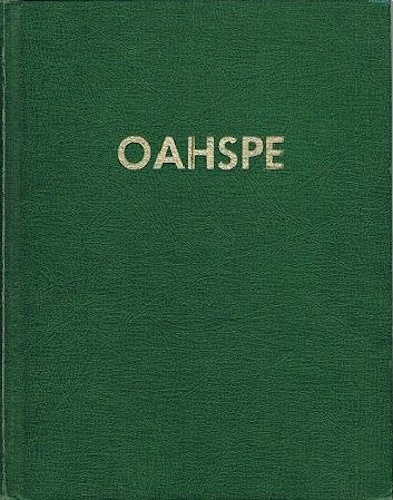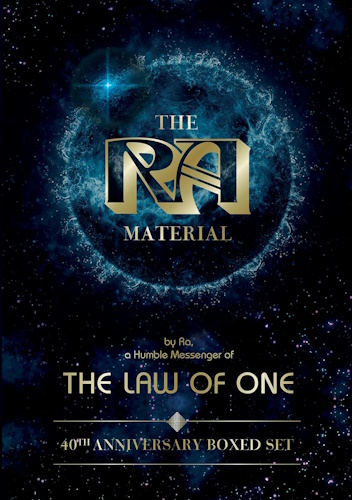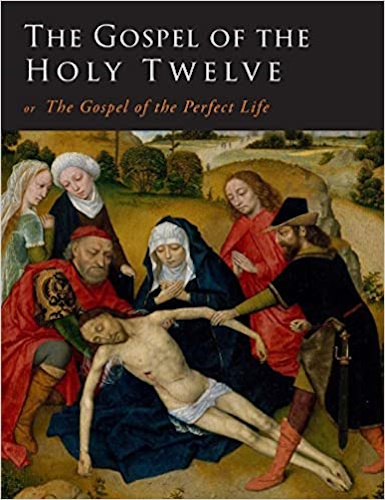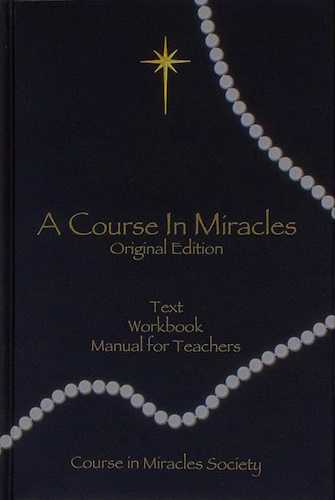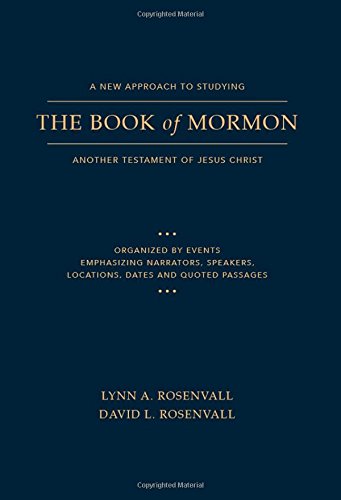
![]()
![]()
Book of Wars Against Jehovih
Chapter XXXI
1. IN course of time Anuhasaj called the meeting of his Gods in Hored, and Osiris and Sudga came; and great were the pageantry and show that day; and the pomp and glory and splendor of Sanctu; with thousands of millions of trained slaves, with their dashing officers of high rank. For at this time it was nearly seven hundred years since even generals and high captains could come into the presence of the Lord God, the false, save by crawling on their bellies, even for miles.
2. And in and around about the heavenly house of the capital were erected fifty thousand pillars of fire, kept forever going by the labor of his slaves, some of whom stood in their tracks laboring at one thing for more than a hundred years, without change of watch, or rest, being threatened with hell, and being too impotent to believe otherwise. None could walk upright to the throne of the Lord God save his high Council, his high marshals, and his Gods, and Anubi. And none else were permitted to look upon him, under penalty of being cast into hell.
3. At first his Gods came to feast with him once a year, for more than a hundred years; after that, for awhile, once in six years; and afterward, only once in fifty or a hundred years; and then only by special command.
4. So it came to pass that the coming of De'yus' false Gods was an occasion of rejoicing and glory to upward of twelve thousand million inhabitants of the kingdom of Anuhasaj. For, far and near, they were extra clothed and fed, and granted freedom for the time being.
5. On the last occasion referred to, the Gods were received by hundreds of millions, called the receiving hosts, in fire-ships of great size and brilliancy, and thus conducted up to the roadways of the court, nearer than which the receiving hosts dared not approach. There the Gods were met by De'yus' high Council and high marshals, and with them entered the area and walked up to the high arch of the capital, which led into the place of the throne of the Lord God. When inside of the Arch, the Council and marshals parted on either side, and, with the head bowed, chanted an anthem of praise to De'yus. The Gods also bowed with respect and friendship, and walked in the midst directly toward the throne.
6. When they were near at hand, the vice-Gods, on either side of De'yus, rose up, saying:
7. In the name of the Lord God of the heavens of the earth, who come here, upright, and as Gods?
8. The Gods responded: Behold, we are sons of the Lord God, great De'yus, and of a truth are we Gods! We demand audience with our Godhead, for the glory of our kingdoms and his.
9. De'yus said: Peace, O my vice-Gods! I do recognize these, my brother Gods. Greeting, in the name of heaven and earth.
10. The Gods responded: Greeting unto thee, O Lord God, mightiest of Gods. In thy mighty name, De'yus, we salute thee worshipfully, to know thy will and pleasure, that we may
p. 414
serve thee in wisdom, and power, and love.
11. De'yus said: Welcome, O ye Gods; the freedom of Sanc-tu is at your hands. Behold, I will clear my palace, that we may privily, and most holily, consult together for the good of angels and mortals.
12. Thereupon De'yus gave a signal for all his officers and attendants to retire beyond the Arch, the which they did. And now that the ceremony of reception was over, Anuhasaj came down from his throne and greeted the Gods cordially by clasping hands, after which they all sat down on the foot seats of the throne; and there were present De'yus, and Osiris, and Sudga, and no others within hearing; for Te-in had not come.
13. And for a while they talked together like long-separated friends; and lo and behold, the satan that was within each one of them began to fail him as regardeth reproving the others. For even the smothered seed of love which the Great Spirit had given them began to swell up, as if about to burst forth a mighty power. So the time passed on, and none dared approach the subject of his soul and resolution.
14. Till at last, De'yus, the most schooled in satan's cause, put an end to their old-time stories and trivial conversation; he said:
15. So much have I loved you both, and am now moved by your august presence, that with all my majesty and power I am weaker than a young child: who will unconcernedly reprove its own father. Or more I am like an old man that, in the absence of his child, findeth cause to quarrel with it; but on seeing it return, breaketh down utterly, and turneth from his previous grieving to an outburst of manifest love.
16. Osiris said: What can move thee to this seriousness, O De'yus? For even as thou hast spoken, so hast thou uttered the sentiment long heavily lain on my heart. But which now, in reverence to thee and thy great kingdoms, causeth me to melt down like snow in a summer's sun. Pray thee, go on!
17. Sudga said, As I live, ye twain, so far my superiors as before whom I am nothing, have spoken the very sentiment of my soul. Pray ye twain, go on; for so great is my love unto you, your most extravagant wish shall be answered by me, though I labor a thousand years to accomplish it.
18. Thereupon De'yus sweetly told his tale, even as satan had taught him. And then he bade Osiris speak his mind, and also Sudga speak his; which they did, even as satan had taught them their parts. When they had finished, De'yus, much surprised by their pitiful tales, even as the others were at his, thus spake:
19. My Gods, how easier it is to find fault with the state of affairs than to find a remedy. I have seen such as find fault with their neighbors, or with the kingdom, or ancients, and yet turned and accomplished the same faults themselves. We all do know that one of the complaints we had against the old Divan laws was their bondage over the Lords and their dominions, holding them to the letter. Whereupon, when we confederated, it was to give independence to each and every Lord to rule his own heaven and division of the earth in his own way. And this was granted unto all my Lords and unto me and my kingdom likewise. And behold where it hath harvested! In the fullness of my soul I gave you certain doctrines to give unto mortals, chief of which was to make my names worshipful on the earth. But I bound you not, saying: Do ye this, and no more. But I said unto you: Here is the substance of the foundations of my doctrines. Go ye unto mortals and teach them these things, adding or abridging according to your own wisdom.
20. And this ye accomplished, and added thereunto the temptation to mortals to become carnivorants, whereby the grades have fallen woefully. And now ye find fault with me for exacting a certain number of slaves annually of a certain grade; complaining that your own kingdoms are becoming flooded with drujas.
21. Osiris said: Hear me, O Lord my God, for I have labored for thee and thy kingdoms many a hundred years. Nor are my words in passion, but well considered; wherein, therefore, if I err, I ask no excuse on account of hastiness. First, then, that our confederation was founded to make a mighty kingdom, heavenly, having dominion over mortals on the whole earth; of which kingdom thou wert to be the chief and greatest glory, and ourselves second. To all of which our songs to this day bear testimony. But, as for songs or testimonies in the libraries of heaven, that our confederacy was founded chiefly to get rid of the Divan laws, I have not seen nor heard of one.
22. Sudga said: What I have done is done. I was commanded to a division of the earth, to subdue it unto De'yus, and I have so accomplished it. I have listened to your complaints, but neither hath offered a remedy. Ye twain are higher in rank and wisdom p. 415 than I; when ye have spoken to the purpose I will also speak. For my part, I am thankful there are no Divan laws to bind me.
23. De'yus said: The remedy lieth in overturning the cause of the falls in the grades. For sake of glorifying themselves, my Gods have suffered places of learning and industry to fall to pieces, both in heaven and earth. There be such as give glory unto charity, and unto rites and ceremonies; but I say unto you, my Gods, INDUSTRY AND LEARNING stand higher than charity or rites and ceremonies; especially so standeth industry that yieldeth profitable support.
24. Osiris said: Where, O Lord my God, lieth the difference betwixt that which is written or spoken? In thy opening words thou hast even now reiterated the bondage of the Divan laws over the Lords. And in the next breath thou sayest: I command you to re-establish the places of learning and industry.
25. Sudga said: Are not written laws less arbitrary than spoken ones? for we see them beforehand, and are not, therefore, shocked by the sudden audacity.
26. De'yus said: In either case is it not true that the highest in power and mightiest in the plans and arrangement of his kingdoms must either take jibes and insults from his inferiors, whom he hath lifted up and made what they are, or otherwise fall broken-hearted on the loss of their love and worship? For on all hands we behold, alas, beneficiaries are apt to turn like venemous serpents, and strike, even though the blow would send themselves into destruction.
27. Osiris said: That is most especially true, O De'yus, where the highest kingdoms owe their glory and greatness to those that have been subsidiary and built them up. None are so slow to see their danger as they that are exposed to it. There be such who, holding high places, if but their slaves knew who they were and how deceived, would bind them in knots and cast them into hell.
28. Sudga said: But in such cases is it not better, O my wise brothers, that the highest who have been raised up by the toil and industry of others, that labored to have them glorified, turn from their own glory and selfish ends, and divide up their ill-gotten kingdoms, and bestir their lazy carcasses by sending assistants to those that have them in their power?
29. De'yus said: Most wisely spoken, both my Gods. But how shall we teach apes and monkeys to know their masters? They crook their tails and squeal, imagining themselves great monarchs. Whereas, were they cut off from their masters, they would come to grief most ignominiously, or be the foremost plunged into torments.
30. Osiris said: Thou wisest of Gods, is it not most strange, wonderful, how better we can see others' shortness than our own? Nor are we much quicker to find a way to save them, which we oft could do were they not self-conceited fools, than to guard our arms, so that when they show the least sign to do us wrong, we inwardly swear within our souls to hurl them into hell.
31. Sudga said: O my loves, it is a sad reflection, when we survey mighty kingdoms at their quarrels, knowing that, if either dare lift a hand to destroy, we ourselves hold the key whereby they can be, both, stript of their highest subjects and their greatest glories, and left in the ruins of their own evil concocting. But the wise abide their time, and oft are fortified when others know not of it.
32. De'yus said: My most wise Gods, ye have spoken great wisdom. I will weigh your words and be governed accordingly. For your most holy visit I am honored above all I deserve.
33. Osiris said: Words cannot express my reverence for thy spoken words, O De'yus.
34. Sudga said: I am bowed with sorrow to leave the place of so much wisdom, love and power.
35. And now Osiris and Sudga stepped backward, four paces each, but separate from each other, with their heads still bowed. By a signal, the vice-Gods re-entered and stood beside the Gods, and then all, with heads bowed, raised their hands and saluted in the Sign CENTRAL SUN. De'yus answered them on the sign MUSIC OF THE SATELLITES.
36. Slowly now, and with measured step, to low sweet music, backward, the Gods and vice-Gods crossed the area and passed the Arch, where the vice-Gods left them and returned within. But the Gods were now met by the high Council and high marshals and conducted to the entrance gate, where they left them, and they were received, Osiris and Sudga, by their hosts and reconducted to their ships, with great pomp and honor, and they at once set sail for their own heavenly kingdoms.
37. Now, in this whole proceeding, the Gods were all surprised that Te-in came not, nor, by messenger or otherwise, answered the summons; nor could one of them imagine the cause.
-
Urantia Book, 44:0.11 - The Celestial Artisans
Never in your long ascendancy will you lose the power to recognize your associates of former existences. Always, as you ascend inward in the scale of life, will you retain the ability to recognize and fraternize with the fellow beings of your previous and lower levels of experience. Each new translation or resurrection will add one more group of spirit beings to your vision range without in the least depriving you of the ability to recognize your friends and fellows of former estates.
-
Princess Bride 1987 Wallace Shawn (Vizzini) and Mandy Patinkin (Inigo Montoya)
Vizzini: HE DIDN'T FALL? INCONCEIVABLE.
Inigo Montoya: You keep using that word. I do not think it means what you think it means. -
Urantia Book, 117:4.14 - The Finite God
And here is mystery: The more closely man approaches God through love, the greater the reality -- actuality -- of that man. The more man withdraws from God, the more nearly he approaches nonreality -- cessation of existence. When man consecrates his will to the doing of the Father's will, when man gives God all that he has, then does God make that man more than he is.
-
Urantia Book, 167:7.4 - The Talk About Angels
"And do you not remember that I said to you once before that, if you had your spiritual eyes anointed, you would then see the heavens opened and behold the angels of God ascending and descending? It is by the ministry of the angels that one world may be kept in touch with other worlds, for have I not repeatedly told you that I have other sheep not of this fold?"
-
Urantia Book, Foreword - 0:12.12 - The Trinities
But we know that there dwells within the human mind a fragment of God, and that there sojourns with the human soul the Spirit of Truth; and we further know that these spirit forces conspire to enable material man to grasp the reality of spiritual values and to comprehend the philosophy of universe meanings. But even more certainly we know that these spirits of the Divine Presence are able to assist man in the spiritual appropriation of all truth contributory to the enhancement of the ever-progressing reality of personal religious experience—God-consciousness.
-
Urantia Book, 1:4.3 - The Mystery Of God
When you are through down here, when your course has been run in temporary form on earth, when your trial trip in the flesh is finished, when the dust that composes the mortal tabernacle "returns to the earth whence it came"; then, it is revealed, the indwelling "Spirit shall return to God who gave it." There sojourns within each moral being of this planet a fragment of God, a part and parcel of divinity. It is not yet yours by right of possession, but it is designedly intended to be one with you if you survive the mortal existence.
-
Urantia Book, 1:4.1 - The Mystery Of God
And the greatest of all the unfathomable mysteries of God is the phenomenon of the divine indwelling of mortal minds. The manner in which the Universal Father sojourns with the creatures of time is the most profound of all universe mysteries; the divine presence in the mind of man is the mystery of mysteries.
-
Urantia Book, 1:4.6 - The Mystery Of God
To every spirit being and to every mortal creature in every sphere and on every world of the universe of universes, the Universal Father reveals all of his gracious and divine self that can be discerned or comprehended by such spirit beings and by such mortal creatures. God is no respecter of persons, either spiritual or material. The divine presence which any child of the universe enjoys at any given moment is limited only by the capacity of such a creature to receive and to discern the spirit actualities of the supermaterial world.
-
Urantia Book, 11:0.1 - The Eternal Isle Of Paradise
Paradise is the eternal center of the universe of universes and the abiding place of the Universal Father, the Eternal Son, the Infinite Spirit, and their divine co-ordinates and associates. This central Isle is the most gigantic organized body of cosmic reality in all the master universe. Paradise is a material sphere as well as a spiritual abode. All of the intelligent creation of the Universal Father is domiciled on material abodes; hence must the absolute controlling center also be material, literal. And again it should be reiterated that spirit things and spiritual beings are real.
-
Urantia Book, 50:6.4 - Planetary Culture
Culture presupposes quality of mind; culture cannot be enhanced unless mind is elevated. Superior intellect will seek a noble culture and find some way to attain such a goal. Inferior minds will spurn the highest culture even when presented to them ready-made.
-
Urantia Book, 54:1.6 - True And False Liberty
True liberty is the associate of genuine self-respect; false liberty is the consort of self-admiration. True liberty is the fruit of self-control; false liberty, the assumption of self-assertion. Self-control leads to altruistic service; self-admiration tends towards the exploitation of others for the selfish aggrandizement of such a mistaken individual as is willing to sacrifice righteous attainment for the sake of possessing unjust power over his fellow beings.
-
Urantia Book, 54:1.9 - True And False Liberty
How dare the self-willed creature encroach upon the rights of his fellows in the name of personal liberty when the Supreme Rulers of the universe stand back in merciful respect for these prerogatives of will and potentials of personality! No being, in the exercise of his supposed personal liberty, has a right to deprive any other being of those privileges of existence conferred by the Creators and duly respected by all their loyal associates, subordinates, and subjects.
-
Urantia Book, 54:1.8 - True And False Liberty
There is no error greater than that species of self-deception which leads intelligent beings to crave the exercise of power over other beings for the purpose of depriving these persons of their natural liberties. The golden rule of human fairness cries out against all such fraud, unfairness, selfishness, and unrighteousness.
